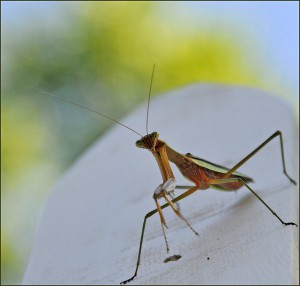Farming method more important for farm biodiversity than landscape
A recent study published in the journal Landscape Ecology has found that using organic methods is more important in determining the amount of beneficial predator insects on farms than having diverse landscapes. Scientists compared the effects of landscape composition, habitat quality related to organic and conventional farming, and other characteristics such as hedgerows to determine the diversity of aphid natural enemies using a modeling approach. Forty pairs of organic and conventional winter wheat fields were sampled for ladybirds, carabid beetles, and parasitoids—all aphid predators. The data were then included in a model accounting for farming method, landscape heterogeneity, and natural elements such as hedgerows. Researchers determined that using organic methods was most important in determining whether or not farms had high beneficial insect diversity because they also had high habitat quality. “Organic farmers implement assemblages of practices, which are generally less disruptive than those of conventional farmers, especially because of the lack of synthetic pesticides. In our study, these practices were associated to a more abundant and diversified vegetation (due to weeds and wheat), creating a favorable microclimate and offering resources (e.g., alternative food) to insects,” the researchers noted.


